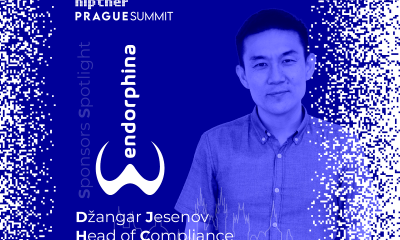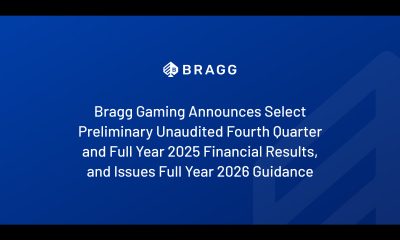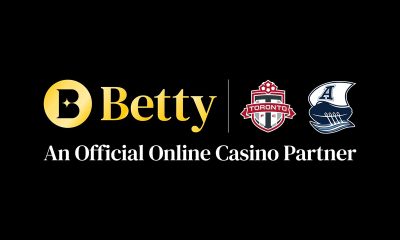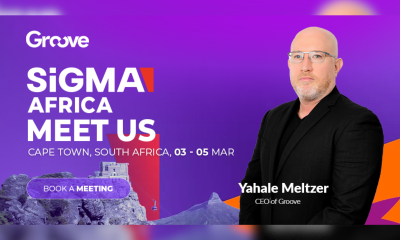Interviews
Strategies for Cultivating Player Engagement: Insights from Head of SOFTSWISS Sportsbook Alexander Kamenetskyi
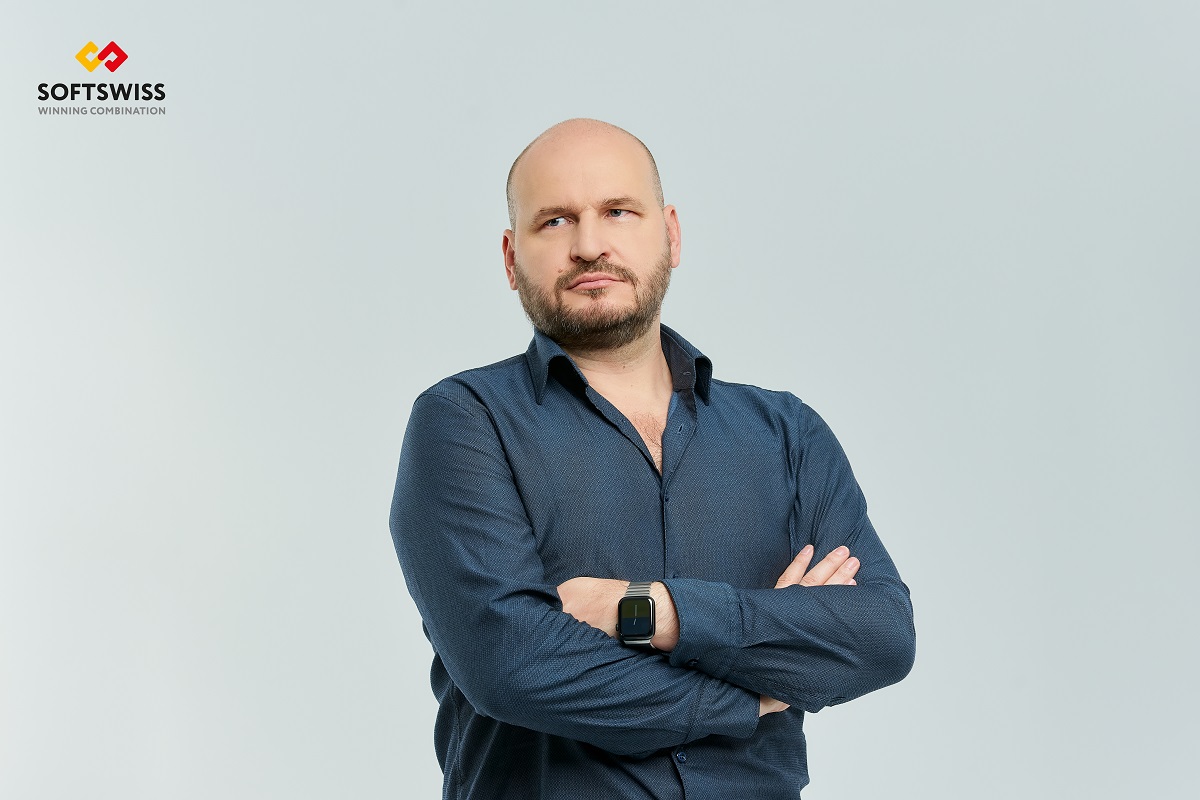
Alexander joined the company in May 2020. He has more than 26 years of experience in Sports Betting and Gambling. His expertise lies in betting trends, iGaming sports industry analytics, product development, and product team management.
From your perspective what are the most significant issues confronting betting and gaming companies?
Within the iGaming industry, two core objectives take centre stage: player attraction and player retention. In this context, two pivotal aspects demand our attention.
Firstly, if we take a closer look at the strategies and products of B2B companies, it becomes quite evident that many of them grapple with truly understanding what players really need. Secondly, in the world of betting, it’s not just about offering a product, it’s about making sure that product actively engages players.
What is more, it’s imperative for a bonus system to operate like a well-tuned instrument in the operator’s hands. It should allow them the flexibility to finely adjust the player journey from the moment they step into the project and keep them engaged for the long haul. We are talking about creating an environment where players are not just involved but genuinely interested.
At the same time, we understand that players may want to explore other gaming projects. Our key objective here is to ensure that once they switch to another platform, they immediately come to realise that our bonus system offers a more captivating and user-friendly experience. They might not be able to explicitly explain why, but they will unmistakably feel the distinction. This remains the foundational principle behind our development efforts.
What do you think about such methods of keeping attention, as gamification?
We all have this inner child inside us, right? And we often end up telling that inner child to put away the toys. That’s where gamification steps in. It’s like this cool trick where even apps that have nothing to do with games sneak in some fun stuff.
In the financial sector, there’s this interesting bank app that cleverly incorporates gamification principles. Now, you might think banking is far from gaming, but this app offers some cool incentives. Imagine getting extra cashbacks, cool avatars, and bonuses just for using the app actively. For instance, when you buy tickets to three different countries, they reward you with a ‘traveller’ avatar. They’ve even got this central character, a cat, that you can interact with, turning your banking tasks into a fun gaming experience.
It all comes down to our basic need to play, something we usually hold back on. But when you sprinkle in a bit of fun, engagement shoots up. We start getting into missions and quests, and that keeps us coming back for more. That’s exactly what these app developers are after – they want to keep us hooked. So, we keep coming back to take care of our virtual cat or spin that wheel because, let’s be honest, missing out on those means fewer bonuses. Plus, we are all in on those weekly missions to boost our ranking. It’s all about that core principle – making it fun to keep us around.
How can an operator gain player loyalty?
Throughout my years in this field, I’ve come to truly appreciate the power of personalisation. It’s a game-changer that goes beyond the allure of bonuses or the thrill of gamification.
Within our operations, we have specialised departments like retention and VIP retention. Their mission is to treat each VIP player as a unique individual, not just another customer. It’s about understanding that VIP players have distinct needs and preferences. By promptly addressing their requests and concerns, we make them feel genuinely valued. This principle isn’t confined to the betting world, it’s a universal truth. Bonuses certainly add excitement, but they’re just an extra layer.
When it comes to engaging with VIP players, I have frequently witnessed various scenarios. Sometimes, players approach with questions that have nothing to do with the project itself. They might ask for directions or assistance with entirely unrelated matters. Those who actively step in to help in such situations often become heroes in the eyes of the players. It’s akin to creating a bond where players instinctively look to us for any need, whether it’s related to placing a bet or seeking guidance on entirely different matters. It’s about cultivating a reflex in the player that says, “If I need something, I know where to go.”
When considering regular players who are not in the VIP category, it’s imperative to gauge their retention levels. For example, a company might use a system featuring five retention levels based on player profitability. Employees are assigned KPIs, which might include elevating their clients to the next retention level. Based on their performance, employees can also progress to the next level. This strategy has proven to be highly effective.
Furthermore, when discussing player retention, I would pay attention to recommendations. For instance, consider a scenario where we inform a player that their favourite team is scheduled to play today, but one of the key players is sidelined, and the team is facing issues with their striker. Our approach isn’t about misleading the player; it’s about establishing trust, knowing that maths will do the rest.
Another effective approach to engage players is by introducing tournaments, quests, and jackpots that encourage friendly competition among players. These diverse tools can be harnessed to incentivise players to participate in various activities. For instance, the operator might announce that all bets placed on the International 2023 will contribute to a specific jackpot. This strategy motivates players to actively partake in these actions, enhancing their overall experience.
When discussing betting with odds, it’s important to keep in mind that our profits are linked to the margin. Unfortunately, this fundamental concept is often overlooked by many operators in the betting industry, even those with extensive expertise. It’s common for them to disregard the critical point that a bookmaker’s earnings aren’t intricately tied to the odds they present but are, in reality, shaped by the margin they can uphold.
In certain tournaments, we encourage players to engage in a competition for a shared prize pool. These tournaments come with two key limitations: firstly, the prize pool is fixed for that specific tournament, and secondly, there is a time limit since the pool gradually decreases if players are not actively involved.
Moreover, we can design tournaments where players receive rewards for specific in-game actions or achievements, adding an extra layer of excitement and engagement to the competition.
At SOFTSWISS, what are your primary areas of focus when it comes to designing and enhancing your products?
We have three main criteria in mind. The first two are super important, while the third serves to complement them.
Firstly, we always look at the player’s needs. Keeping players engaged and interested is a top priority. Secondly, we’ve got what the operator needs. We want to motivate players to do things that are not only fun for them but also good for the operator. Like, encouraging bets on live and express events – it’s a win-win. Lastly, there’s market trends. We are always keeping an eye on what’s hot and what’s not because we know other operators are doing the same. We want to stay in the game and make sure our players have the latest and greatest.
And let’s not forget about the importance of automation. The smoother and more automated these tools are, the better they work for both operators and players.
Diving into the finer details, let’s examine what a player really needs. Ideally, betting should be effortless for them, requiring minimal thought, and in return, they should receive bonuses for their actions, serving as a catalyst for their engagement. It’s imperative that players feel acknowledged, encouraged, and valued – just like that.
When it comes to bookmakers, their main objective is to motivate players to bet on live and express events. This is all about boosting player engagement. However, operators generally prefer not to invest excessive time and resources into managing bonuses and customisation, as it can be a challenging task.
Another challenge revolves around content. It involves the need to brainstorm ideas, create content, publish it on the site, promote it to players, and most importantly, ensure that they engage with it. Many companies maintain dedicated departments to handle these tasks, specifically focusing on content management. Unfortunately, this can result in substantial financial overhead as these departments need ongoing maintenance and resources.
Our system empowers operators to effortlessly create new bonuses in a matter of minutes. Even for bonuses that were issued in the past, it takes less than a minute to relaunch them. The brilliance of our system lies in its ability to automatically generate T&C and banners, completely removing the need for operators to get involved in this process.
Furthermore, when a bonus reaches its expiration date, our system removes the associated banner and all related content automatically. This means operators don’t have to spend their valuable time and energy on content management. In essence, we strive to save our partners precious time and streamline their operations. With our product, we aim to shift operators’ primary focus towards attracting more traffic while automating repetitive tasks, ultimately making their workflow much more efficient.
The SOFTSWISS Sportsbook comes equipped with integrated gamification features, including exclusive industry bonuses and jackpots, providing both players and operators with a wide array of enhancements to elevate their gaming experience. Beyond the typical sports betting bonuses, the SOFTSWISS Sportsbook boasts four entirely unique bonuses that play a pivotal role in substantially boosting player engagement – Hunting Bonus, Hunting Tournaments, Lootbox Bonuses, Freebet Booster.
Another challenge that operators often grapple with is determining the right value for bonuses. It’s essential that players receive bonuses that match their betting activity and continue to entice them. This balance is critical in all areas of betting, whether it is online casinos, offline casinos, or sports betting.
The main obstacle here is finding a way to reward smaller players appropriately without overly lavishing them with bonuses. For instance, it wouldn’t make sense for a player betting just 1 euro to receive a whopping 100 euro bonus. Conversely, it’s equally vital not to underwhelm high-value players. It can be quite awkward when a VIP player, who is wagering substantial amounts, is offered a mere 100 euro bonus. Finding this balance is a delicate yet crucial aspect of our work.
The real challenge here is to make sure we automate this system effectively. Fortunately, we’ve got it covered through our Hunting Bonus. Our system operates seamlessly in automatic mode, guaranteeing that players who consistently bet larger amounts, like 3,000 euro, get the free bets they deserve.
The SOFTSWISS Sportsbook smoothly integrates with various platforms, seamlessly collaborating with their CRM systems and features. This eliminates the need for extensive operator retraining, allowing them to continue working with familiar tools and processes. Additionally, it offers enhanced customisation options for a more personalised experience.
More importantly, this flexibility extends beyond SOFTSWISS platforms. Operators are not confined to using platforms exclusively developed by SOFTSWISS. They can effortlessly incorporate our Sportsbook functionality into a diverse array of platforms, whether within or outside the SOFTSWISS ecosystem.
What business metrics can be improved with gamification tools and bonuses?
The operator can offer a bonus for the next month if a player’s deposits exceed 1,000 euro for the current month, given that the player typically deposits around 800 euro. In this scenario, even if the player’s current deposits stand at 800 euro, and they may not have the full amount readily available, there’s a strong likelihood that they will make an additional 200 euro to qualify for the bonus. This action automatically elevates the player’s status or level.
By focusing on a player group that typically places an average bet of, let’s say, 5 euro, the operator can implement a unique bonus strategy. For instance, for players who achieve a winning streak in football bets with a wager of 7.5 euro, every third successful bet activates a 10 euro free bet. As players persist in their betting activities and progressively raise their average bet, often without being consciously aware of it, the operator witnesses a natural 50% increase in their average bet size.
Consequently, the operator anticipates a corresponding 50% increase in Gross Gaming Revenue (GGR). While the bonus component of the operator’s expenses does increase in this scenario, it typically remains around 25%, and the GGR surges by 50%. In essence, the operator gains an additional 25% in overall revenue.
Regarding bonuses, operators in both casinos and sports betting often fail to address a crucial aspect: defining the bonus offer’s purpose. Operators must precisely determine their incentive goals, whether it’s increasing deposits, raising the average bet size, or prolonging player engagement. Bonuses should be strategically tailored to encourage players to take particular actions that align with the operator’s objectives.
When implementing a bonus, it’s imperative to recognise the intended impact on a particular metric and establish clear, measurable criteria for assessing its success. This clarity ensures that bonuses are not just a perk for players but also a strategic tool for driving desired outcomes in the operator’s favour.
About SOFTSWISS
SOFTSWISS is an international iGaming company supplying certified software solutions for managing gambling operations. The expert team, which counts 1,500+ employees, is based in Malta, Poland, Georgia, and Belarus. SOFTSWISS holds a number of gaming licences and provides one-stop-shop iGaming software solutions. The company has a vast product portfolio, including the Online Casino Platform, the Game Aggregator with thousands of casino games, the Affilka affiliate platform, the Sportsbook Platform and the Jackpot Aggregator. In 2013 SOFTSWISS was the first in the world to introduce a bitcoin-optimised online casino solution.
Compliance Updates
Endorphina Compliance Strategies Explained ahead of HIPTHER Prague Summit
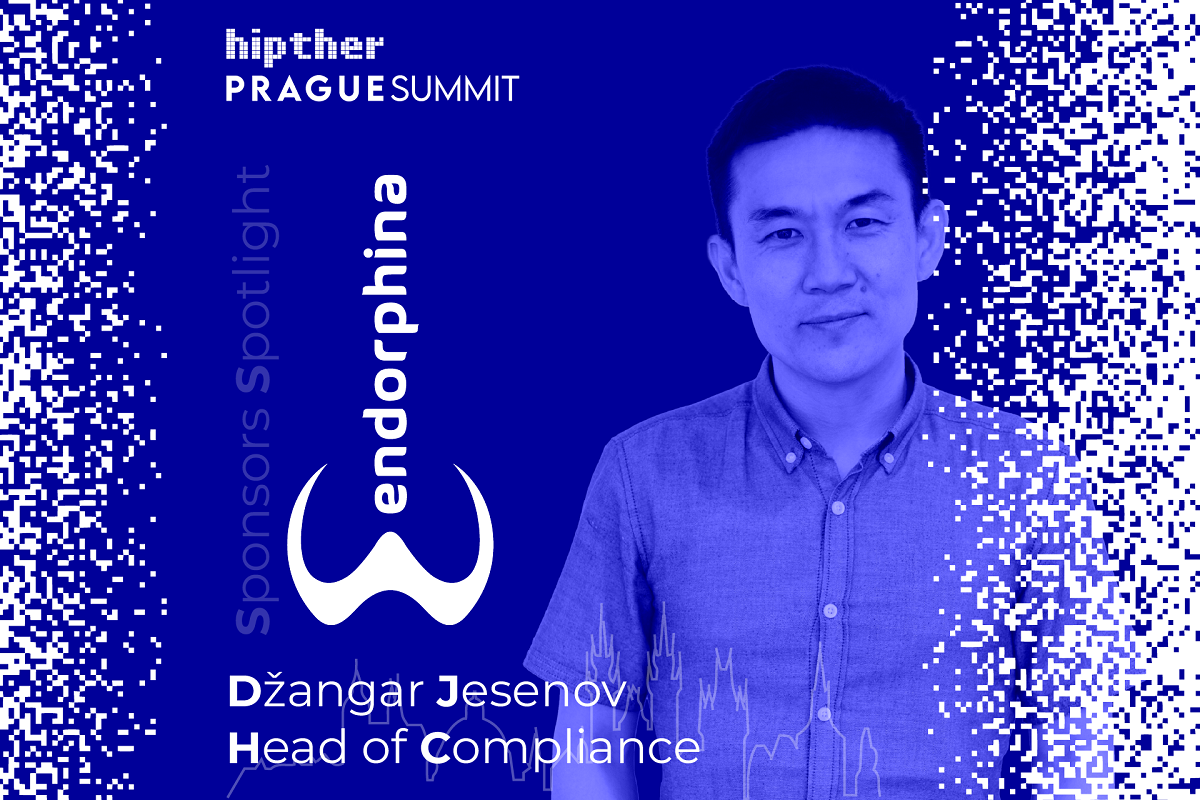
Ahead of the HIPTHER Prague Summit 2026, we speak with Džangar Jesenov, Head of Compliance at Endorphina, to explore how the company approaches regulatory excellence, market expansion, and certification in an increasingly complex global iGaming landscape – and how strong compliance frameworks support sustainable growth across Tier-1 European markets.
You have been leading Endorphina’s compliance function since 2021. How has the regulatory landscape in Europe evolved during this period, and what shifts have had the biggest operational impact on suppliers?
If I were to compare Endorphina in 2021 and Endorphina in 2026, I would describe them as two fundamentally different projects that nevertheless share the same core identity. The primary objective remains unchanged. However, the tools, scope, and operational framework used to achieve that objective have evolved significantly.
The development of the project reflects various external factors, including increasingly stringent regulatory requirements across multiple jurisdictions, technological advancements particularly within the financial sector and, importantly, substantial strengthening of human resources. Ultimately, people remain the most critical element in any successful project.
– From a regulatory perspective, I would particularly highlight the introduction and expansion of B2B licensing policies
Across jurisdictions on different continents, and the increased responsibility placed on game suppliers.
– Most notably, the heightened focus on player protection and security
In my view, enhanced player safety is one of the most important developments in the industry. Delivering engaging, high-quality games that are fully compliant with applicable legal frameworks is the foundation of any successful online platform and this is a commitment we uphold 24/7/365.
Endorphina has successfully expanded its presence across Tier-1 European markets. From a compliance perspective, what are the key pillars that enable smooth market entry and long-term sustainability?
In practice, there are unfortunately no “miracle tools” that would allow us to operate seamlessly at the highest regulatory level.
– I may not be saying anything new or particularly surprising here, but behind every jurisdiction we enter lies a substantial amount of work
Each market requires extensive hours of analysis, including a detailed review of regulatory obligations, comparison of local data requirements and reporting outputs, development of internal policies tailored to the specific regional framework, structured internal data sharing across project teams, and the implementation of oversight mechanisms to ensure compliance with newly introduced rules.
There is a significant amount of daily routine involved continuous processes, reporting, analysis, and, where necessary, re-implementation of procedures, including updates or revisions of internal regulatory frameworks.
Certification and regulatory alignment remain major challenges for many suppliers. How does Endorphina structure its internal processes to ensure efficiency while maintaining full regulatory integrity?
With the development of regulatory obligations, our practices in this area are also evolving. Compliance in the gambling business matures like fine wine. The more stable your team is, the stronger your position on the market becomes. Today, regulations are being introduced in many new jurisdictions where gambling was completely prohibited just a few years ago, and I see this as progress from a regulatory perspective.
– Our internal processes are continuously evolving toward the automation of data that does not require increased attention
Human resources are instead focused on information that is more relevant and requires deeper integrity.
With increasing focus on information security, responsible gaming, and technical standards, how do you see the role of compliance teams evolving within modern iGaming organisations?
As regulatory obligations continue to evolve, so does our practical experience in this area. Compliance in the gaming industry matures over time – much like fine wine.
– The more stable and experienced your team is, the stronger your position in the market becomes
Today, regulation is being introduced in many new jurisdictions where gambling was completely prohibited just a few years ago. I see this as a positive development and a clear indication of progress from a regulatory perspective.
Endorphina has built a reputation as a trusted slot provider with a strong global partner network. How should compliance, product development, and commercial teams collaborate today to support scalable growth?
As Head of Compliance, I believe scalable growth is only achievable when compliance, product development, and commercial teams operate in full alignment rather than in silos. Compliance must be involved from the earliest stages of market entry and product design to prevent delays, reduce regulatory risk, and support sustainable expansion.
– Product development should focus on modular, certification-ready solutions that allow efficient adaptation across multiple jurisdictions
Commercial strategy must remain closely aligned with regulatory feasibility, ensuring that opportunities are both attractive and compliant. Ultimately, stable and experienced teams are the key factor in building long-term, regulatorily resilient growth.
Looking ahead to the next 12–24 months, which regulatory or market developments should operators and suppliers be preparing for most carefully?
In this area, we are working very intensively. Looking ahead, I anticipate further increases in regulatory obligations, faster development of regulated markets, and structural changes in core online gaming products.”
– I expect deeper integration of games with the player environment, placing greater emphasis on individual profiling and personalization of each session
These evolving models will inevitably be reflected in regulatory frameworks, with a stronger focus on player protection and proper tax accountability. At the same time, regulators will increasingly compete to attract high-quality market participants, a category to which Endorphina clearly belongs.
In the near-term perspective, many of today’s processes will become standard industry practice, while additional requirements will emerge, particularly those linked to the accountability and oversight of key individuals within licensed entities.
Endorphina is the GamingTECH Awards Party & Ceremony Sponsor at HIPTHER Prague Summit 2026. What would you like operators, partners, and industry peers to take away from engaging with your team during the event?
Thank you for the opportunity to be among the first to welcome our friends. First and foremost, I would like to thank everyone who will be joining us in person in one of the most beautiful cities in the world, Prague.
I wish all participants a truly enjoyable experience.
– Make the most of every moment spent among inspiring people
Boost your personal endorphin levels and take the opportunity to get to know the Endorphina team more closely.
The post Endorphina Compliance Strategies Explained ahead of HIPTHER Prague Summit appeared first on Eastern European Gaming | Global iGaming & Tech Intelligence Hub.
AI
FlexPlay: building a platform made to grow with its partners
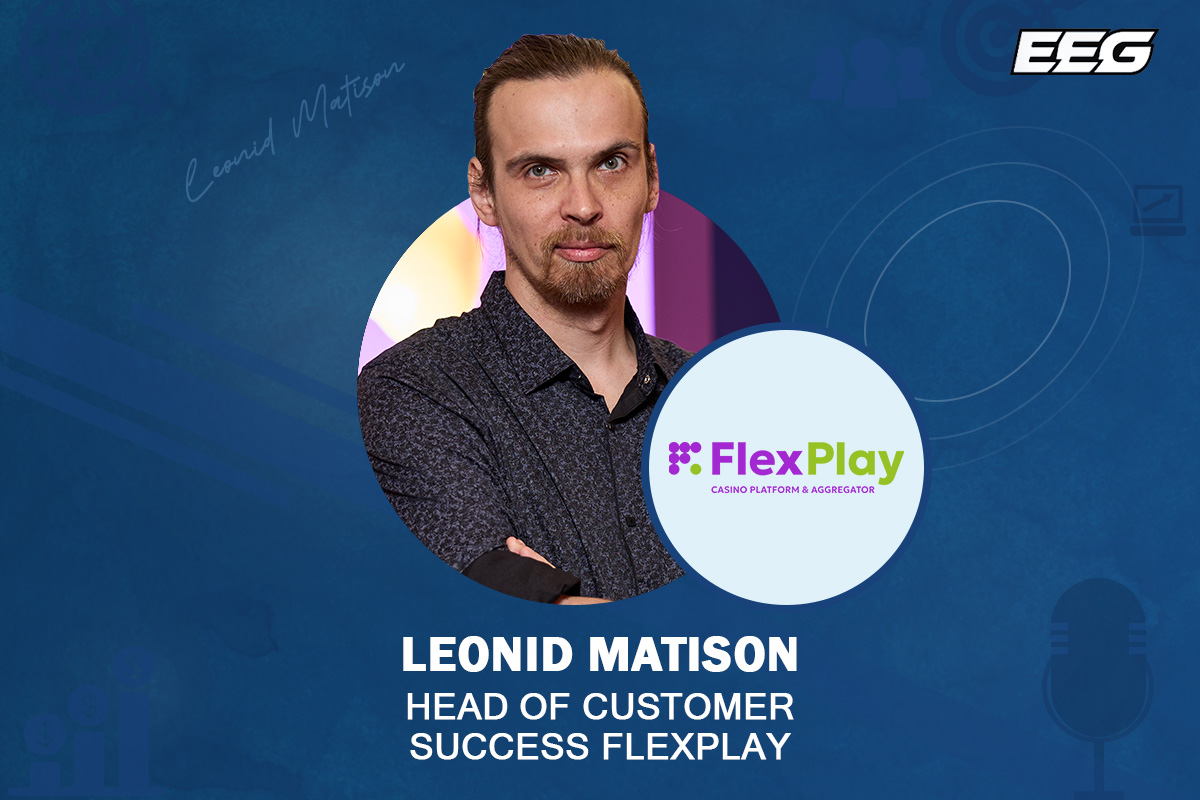
FlexPlay is entering a new phase with the launch of its own casino platform. Leonid Matison, Head of Customer Success, speaks with EEGaming about what inspired the company’s evolution, how it is helping partners adapt to change, and why a focus on flexibility, creativity, and collaboration is driving its vision for the future.
What inspired the move into the platform space, and how did that background shape your approach to creating it?
FlexPlay was born from EvenBet Gaming out of working closely with operators and studios as an aggregator, so we had a very clear view of where existing platforms were falling short. Many operators were forced to adapt their business models to rigid technology instead of the other way around.
Moving into the platform space was a natural evolution. We wanted to build a product that reflects how the market actually works today: fragmented regulation, fast-changing player behaviour, and the need to launch, test, and adapt quickly. That background shaped our approach significantly. Instead of building a “one-size-fits-all” platform, we focused on modularity, flexibility, and speed, so operators can grow without having to rebuild their infrastructure every time their strategy changes.
The platform market is full of established names. What makes FlexPlay stand out, and what kind of identity are you building for the brand?
Our differentiation isn’t about being louder or bigger — it’s about being more adaptable. FlexPlay is designed as a partner-centric platform, not a closed ecosystem.
We are building an identity around flexibility, transparency, and collaboration. Operators can customise their product, UX, content strategy, and growth roadmap instead of fitting into predefined templates. Commercially, we also remove unnecessary pressure at early stages, for example with models where partners don’t pay content fees until they actually start growing.
In a crowded market, identity comes from how you work with partners day-to-day, not just from features on a website.
You have described FlexPlay as a platform that “evolves alongside its partners.” What does that look like in practice for operators working with you?
We don’t treat launch as the finish line. We stay actively involved after go-live.
Operators receive ongoing support in analysing performance, adjusting content portfolios, testing new mechanics, and refining player engagement strategies. Our platform allows operators to add, remove, or prioritise content quickly, run experiments, and respond to real player data instead of assumptions.
We also actively listen to partner feedback and translate it into platform improvements. If a feature or workflow doesn’t serve operators in real conditions, we adjust it.
How does that flexibility help brands entering fast-changing or emerging markets where conditions can shift quickly?
Emerging markets rarely follow a stable or predictable path. This year, we are going to SiGMA Africa for the first time, and this continent is just the right example of how quickly and often market transforms. Regulation changes, payment preferences evolve, and player behaviour can shift very quickly.
FlexPlay’s flexibility allows operators to adapt without disruption: adjusting payment flows, reconfiguring bonuses, changing content focus, or localising UX. The platform isn’t locked into rigid structures, so operators can react to market signals in weeks rather than months.
This is especially important for brands entering highly volatile markets in Africa or LatAm, where the ability to pivot often determines success.
AI is a hot topic right now. How are you exploring its potential at FlexPlay, and what do you find most exciting about how it can genuinely support operators and players?
We approach AI very pragmatically. For us, it’s not about replacing people or creating black-box systems, but about enhancing decision-making.
We are exploring AI in areas like player segmentation, behavioural analysis, and content recommendations. It may help operators understand what players actually want and when. AI can also support smarter lobbies, more relevant promotions, and better detection of engagement patterns.
What excites us most is AI’s ability to reduce noise. It can highlight what truly matters and help them act faster and more confidently. But it can’t and will not fully replace strategic decision-making by humans.
Personalisation has become an essential part of modern player engagement. What does it mean to you in practice, and how is FlexPlay helping operators bring it to life?
For us, personalisation means relevance. Not just visuals or messages, but the entire player journey. FlexPlay enables operators to segment players based on behaviour, preferences, and performance, and then tailor content, bonuses, and communication accordingly. This helps players discover games that actually match their interests instead of scrolling through endless lobbies.
Good personalisation improves retention and trust. Players feel understood rather than pushed, and operators benefit from stronger long-term engagement.
But we suggest avoiding over-personalisation: if the players see only the recommended “long tail”, it may affect the operator’s revenue. Manual curation in addition to personalisation (like featuring a seasonal game during a holiday, or an operator’s personal favourite) allows for strategic promotions and branding.
Growth can be exciting but also challenging for operators. How do you and your team at FlexPlay support partners as they take that next step?
Growth often exposes weaknesses in technology or strategy. Our role is to help operators scale without losing control.
We support partners with analytics, reviews, and strategic guidance, helping them prioritise what to scale and what to optimise first. Technically, the platform is built to handle growth without forcing structural changes. Commercially, we remain flexible so that a transition is easier for operators.
Looking ahead, what are the key milestones or developments you are focused on for the year ahead?
Our focus is on deepening platform intelligence and partner value. This includes expanding AI-driven tools, improving content discoverability, and enhancing automation where it adds efficiency.
We are also investing in better insights for operators: not just reporting, but actionable recommendations that help them make smarter decisions faster.
Another priority is continuing to refine our platform based on real partner use cases, not theoretical ones.
And finally, when you think about FlexPlay’s future, what do you hope the company will represent within the wider iGaming industry?
I hope FlexPlay will be seen as a trusted growth partner — a company that helped operators build sustainable businesses rather than short-term results.
In an industry that often focuses on speed and scale, we want to represent balance: technology that adapts, content that makes sense, and partnerships built on mutual success.
If operators look back and say, “FlexPlay helped us grow the right way,” that will be the real measure of success.
The post FlexPlay: building a platform made to grow with its partners appeared first on Eastern European Gaming | Global iGaming & Tech Intelligence Hub.
boutique studios
Movers and Shakers: The blueprint for boutique studios looking to crack America
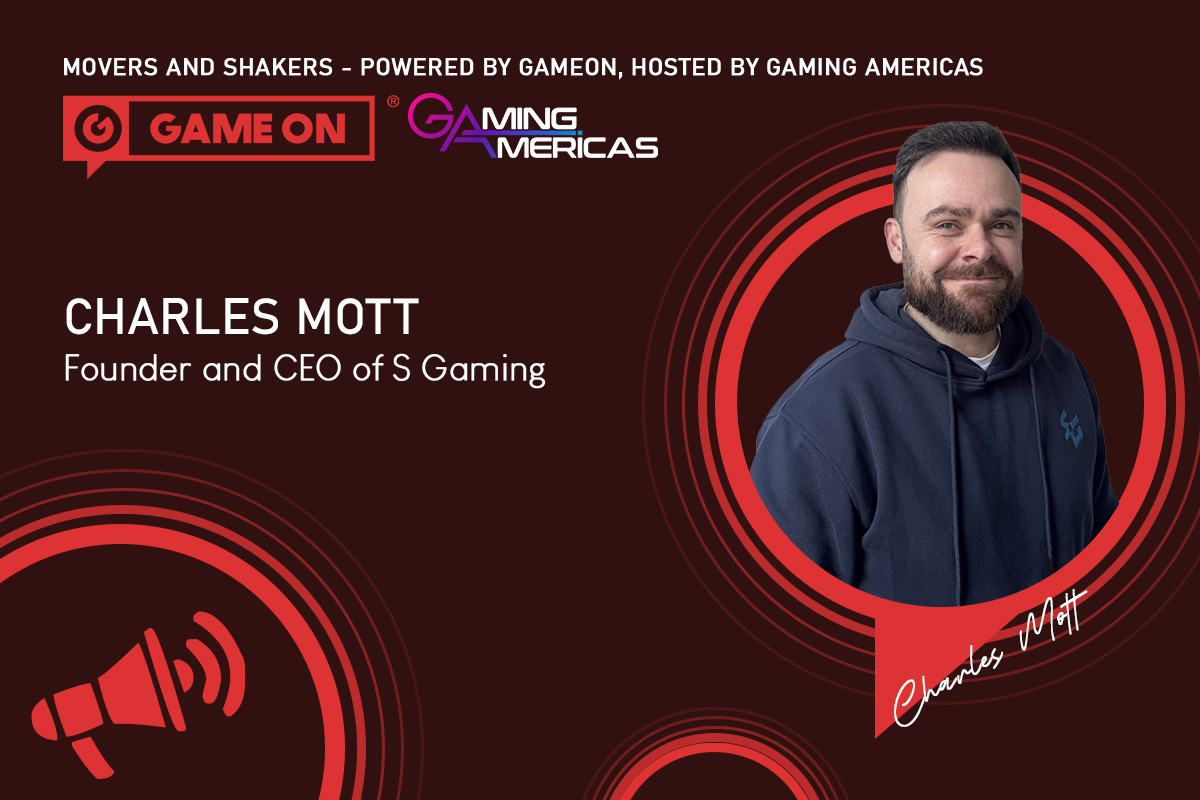
“Movers and Shakers” is a dynamic monthly column dedicated to exploring the latest trends, developments, and influential voices in the iGaming industry. Powered by GameOn and supported by HIPTHER, this op-ed series delves into the key players, emerging technologies, and regulatory changes shaping the future of online gaming. Each month, industry experts offer their insights and perspectives, providing readers with in-depth analysis and thought-provoking commentary on what’s driving the iGaming world forward. Whether you’re a seasoned professional or new to the scene, “Movers and Shakers” is your go-to source for staying ahead in the rapidly evolving iGaming landscape.
Charles Mott, Founder and CEO of S Gaming, says finding success in the US is a tough task, but that studios who can replicate the magic of the casino floor have what it takes to make it stateside
There are plenty of European studios that have set their sights on finding success in the US, but very few have actually managed to achieve it. This is because they are making a common mistake, and that’s failing to translate the preferences of US slot players into their games.
For more than a decade now, the UK and European markets have been defined by “the chase” – high volatility slots with massive, infrequent max wins and jackpots that deliver anticipation and thrills, but that also exhaust the player’s balance in minutes.
But if you walk on to the floor of any Las Vegas casino, the atmosphere is different. It’s about “time at machine”. It’s the neon, the regular dopamine hits of smaller wins and the ability to make $100 provide an entire evening’s worth of entertainment.
As the US market increasingly moves to online, with more states embracing regulated iGaming, it’s no longer finding its feet with players now actively looking for a digital version of the land-based soul they have loved for many years.
Moving away from the “big win” to the “long session”
US players have been culturally conditioned by the physical casino experience. Unlike the high-stakes digital environment of Europe, the American player often views slots as a leisure activity rather than a jackpot hunt.
This is why S Gaming has focused on fun, entertainment and sustainability, with our games matching the “steady tortoise” cadence of land-based slot machines. They still deliver lots of big win potential, but across longer and more engaging sessions.
For operators like BetMGM and Fanatics, both of which we’ve recently partnered with, it’s not just about fun, it’s about retention.
A player who loses their balance in three minutes is a churn risk, but a player who wins small, frequent prizes stays in the ecosystem for longer and ultimately generates a much higher lifetime value.
Efficiency over ego
But it’s not just about having the right games, distribution is also key to cracking America. This is a notoriously difficult market because it’s not one jurisdiction, it’s five (and counting) regulatory islands and in each, you need to secure regulatory approvals.
This is actually a moat that keeps many smaller studios out. It’s an issue we had to overcome, and ultimately looked for a partner that could help us bridge the gap. Our agreement with Gaming Realms allows us to use its remote game server and licences to launch into US states.
This “Infrastructure-as-a-Service” model allows a studio to focus on “game grammar” (math and art) while the partner handles the “plumbing” (compliance and connectivity). It’s the leanest way to hit the ground running with a tier-one operator across multiple states simultaneously.
Why tier ones are buying in
You might be wondering why a tier one giant like BetMGM has joined forces with a boutique UK studio and facilitated its launch into the US.
But the reality is that operators are fighting soaring acquisition costs right now and this means they no longer want more games, they want differentiated games that reduce churn and keep players coming back for more.
Our focus on sustainable entertainment aligns with current US regulatory requirements and the focus on responsible gaming. Games designed for longer, lower stakes sessions are inherently “safer” and more palatable to regulators and risk-averse operators alike.
And they just hit the mark more with players. Sure, winning is a big part of playing online slots, but how you get to the win and the perceived entertainment value is now just as if not more so important – not just in the US but in the UK and Europe, too.
The data-driven evolution
Success does not come from a single launch – it comes from having a feedback loop. We now have a handful of games live in the US market, including our flagship Triple 7 Jackpot title, from which we are gathering real-time data on player behaviour.
This is allowing us to move from “what we think players want” to “what the data tells us they love” and this in turn is allowing us to refine our product roadmap and the games we are producing for the US market, ensuring each title is more culturally resonant than the last.
The new era of transatlantic growth
Cracking America in 2026 isn’t about having the loudest brand of the biggest marketing budget – it’s about understanding the psychology of the casino floor.
The studio’s that succeed will be those that realise the US player isn’t looking for a new way to gamble, they’re looking for a digital version of the “Vegas” feeling they’ve known and loved for decades.
The post Movers and Shakers: The blueprint for boutique studios looking to crack America appeared first on Americas iGaming & Sports Betting News.
-

 Adjusted EBITDA6 days ago
Adjusted EBITDA6 days agoBragg Gaming Announces Select Preliminary Unaudited Fourth Quarter and Full Year 2025 Financial Results, and Issues Full Year 2026 Guidance
-

 Bagley-Keene Act6 days ago
Bagley-Keene Act6 days agoCalifornia Gambling Control Commission Issues Critical Guidance on Stakeholder Communications and Ex Parte Rules
-

 iGaming5 days ago
iGaming5 days agoPRAGMATIC PLAY UNEARTHS PROGRESSIVE MULTIPLIERS IN ROLLING IN TREASURES
-

 Comatel4 days ago
Comatel4 days agoCOMATEL CELEBRARÁ UNA FIESTA PARA CIENTOS DE OPERADORES TRAS FINALIZAR EL PRIMER DÍA DE LA FERIA ESPAÑOLA, INTERAZAR
-

 Betty Casino6 days ago
Betty Casino6 days agoBetty Casino Announces Partnerships with Toronto FC and Toronto Argonauts
-

 Africa6 days ago
Africa6 days agoGroove Targets Africa’s iGaming Boom at SiGMA Cape Town 2026
-

 Australia6 days ago
Australia6 days agoTabcorp Pays $158,400 Penalty for Taking Illegal In-Play Sports Bets
-

 Booming Games5 days ago
Booming Games5 days agoBooming Games Introduces Instastrike, the Latest Diamond Hits Trio









